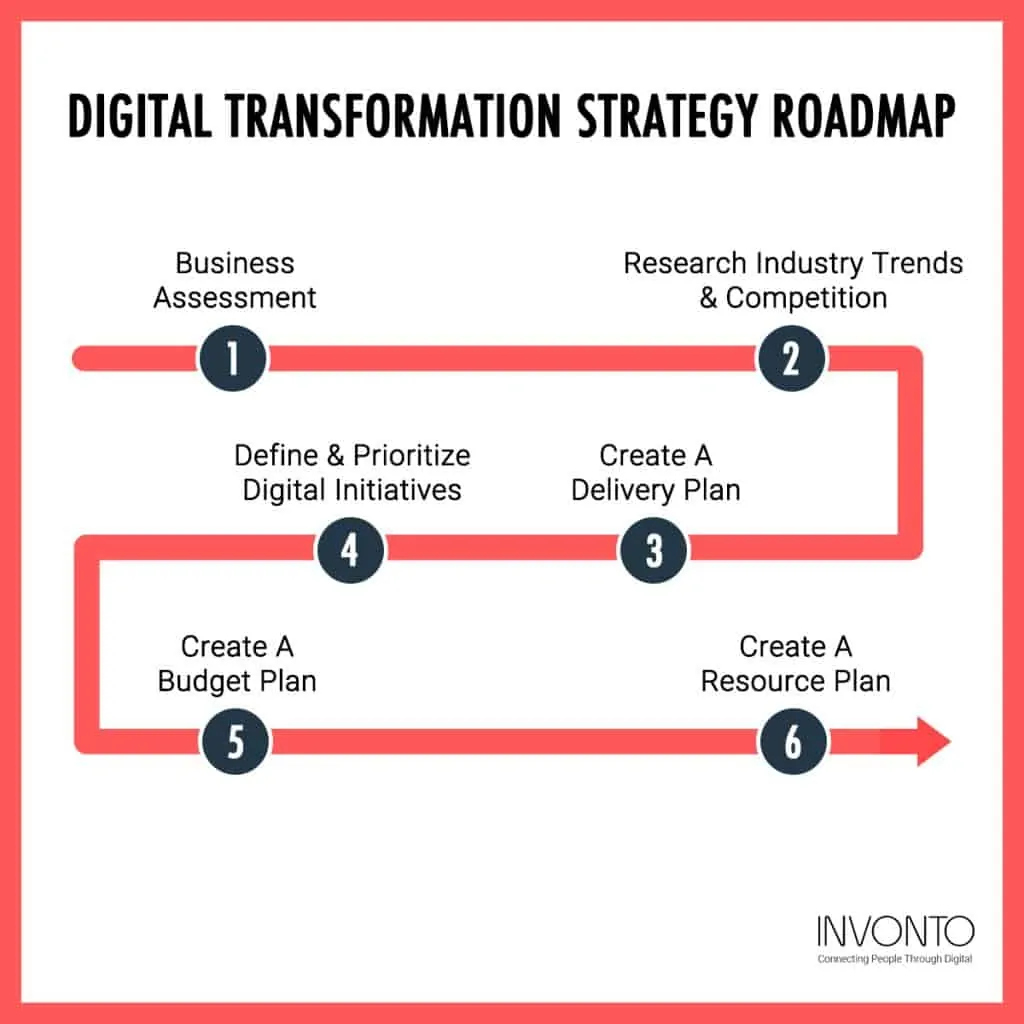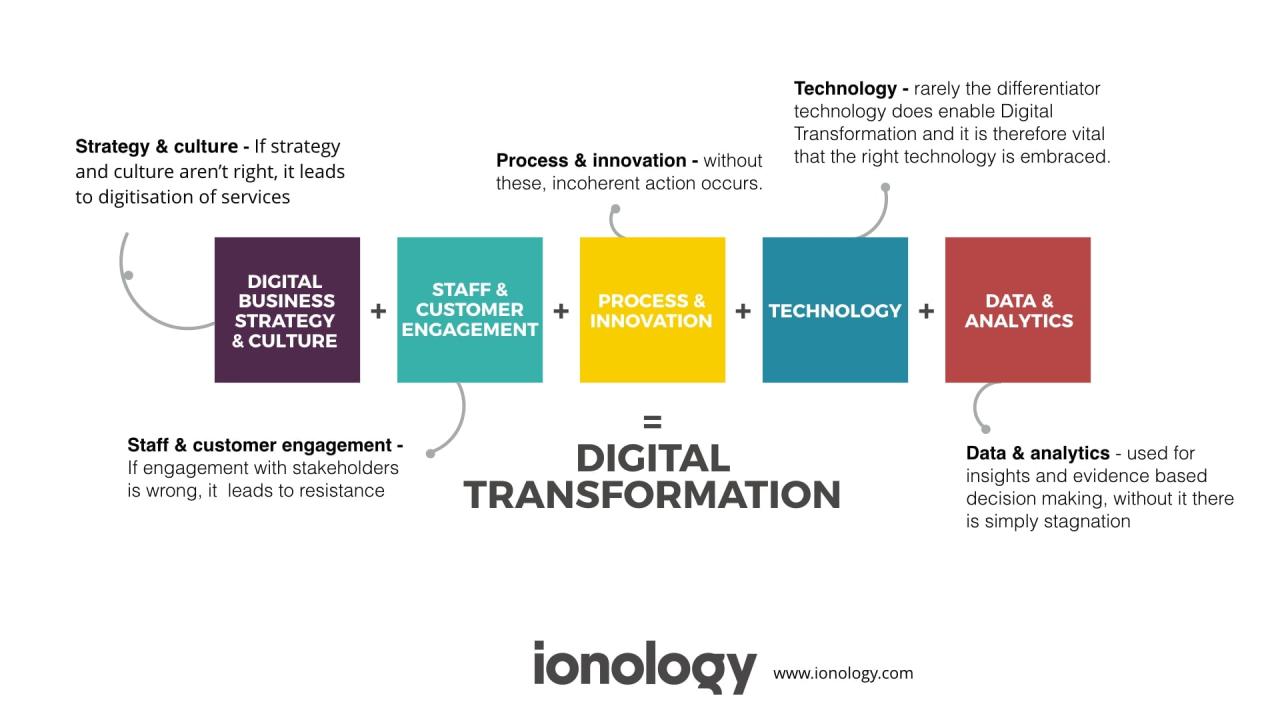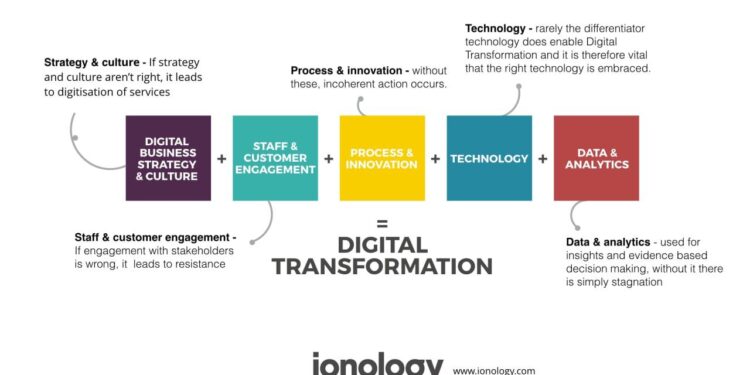Embark on a journey through the realm of digital transformation with DigiLife Comprehensive Digital Transformation Strategies, where innovation meets strategy to redefine the landscape of technology integration.
Delve into the core concepts and methodologies driving DigiLife's approach towards a digitally transformed future.
Overview of DigiLife Comprehensive Digital Transformation Strategies

DigiLife's comprehensive digital transformation strategies revolve around leveraging technology to enhance operations, improve customer experiences, and drive business growth in the digital age.
Concept of Digital Transformation at DigiLife
- At DigiLife, digital transformation entails adopting innovative technologies to streamline processes, increase efficiency, and stay ahead of market trends.
- It involves a shift towards a digital-first mindset, embracing data-driven decision-making, and integrating digital solutions across all facets of the organization.
Importance of Comprehensive Strategies
- Comprehensive strategies are essential for digital transformation as they ensure a holistic approach to leveraging technology for sustainable growth.
- They help align technology initiatives with business objectives, optimize resources, and mitigate risks associated with digital disruptions.
Key Components of DigiLife’s Approach
-
Customer-Centric Focus:
DigiLife places a strong emphasis on understanding customer needs and preferences to deliver personalized digital experiences.
-
Data Analytics:
Leveraging advanced analytics tools to derive actionable insights, improve decision-making, and drive strategic initiatives.
-
Agile Methodologies:
Embracing agile practices to enhance adaptability, speed up development cycles, and respond effectively to market changes.
-
Technology Integration:
Integrating diverse technologies seamlessly to create a cohesive digital ecosystem that enhances operational efficiency and innovation.
DigiLife’s Adoption of Cutting-Edge Technologies

DigiLife has been at the forefront of integrating innovative technologies into its digital transformation strategies, setting itself apart in the industry.
Artificial Intelligence (AI) Integration
DigiLife has successfully incorporated artificial intelligence (AI) into its processes, allowing for efficient data analysis, personalized customer experiences, and predictive analytics. This technology has significantly enhanced decision-making processes and streamlined operations, leading to improved digital transformation outcomes.
Internet of Things (IoT) Implementation
By leveraging IoT devices and sensors, DigiLife has been able to collect real-time data, automate tasks, and optimize resource utilization. This has resulted in increased operational efficiency, reduced downtime, and enhanced connectivity across various systems, ultimately driving digital transformation goals forward.
Blockchain Technology Integration
DigiLife has adopted blockchain technology to ensure secure transactions, transparent processes, and enhanced data integrity. By implementing blockchain in its operations, DigiLife has improved trust among stakeholders, minimized fraud risks, and enabled seamless transactions, aligning with industry standards for secure digital transformation practices.
Impact of DigiLife’s Digital Transformation Strategies on Business Operations
DigiLife's digital transformation strategies have significantly impacted its business operations, leading to improved efficiency, enhanced customer interactions, and streamlined service delivery.
Influence on Operational Efficiency
- DigiLife's adoption of cutting-edge technologies has automated various processes, reducing manual work and increasing operational speed.
- Implementation of data analytics tools has enabled real-time monitoring and decision-making, optimizing resource allocation and minimizing wastage.
- Integration of cloud computing solutions has enhanced scalability and flexibility, allowing for quick adjustments to changing market demands.
Changes in Customer Interactions and Service Delivery
- DigiLife's digital transformation has led to personalized customer experiences through data-driven insights, improving satisfaction and loyalty.
- Introduction of self-service options and digital platforms has facilitated faster and more convenient service delivery, meeting customer expectations effectively.
- Enhanced communication channels have enabled proactive engagement with customers, resolving issues promptly and building stronger relationships.
Benefits Realized by DigiLife
- Increased operational efficiency has resulted in cost savings and improved productivity, enhancing overall profitability for DigiLife.
- Enhanced customer interactions have led to higher customer retention rates and increased referrals, contributing to business growth and sustainability.
- Streamlined service delivery has improved customer satisfaction levels, positioning DigiLife as a market leader known for its exceptional service quality.
Challenges Faced by DigiLife in Implementing Comprehensive Digital Transformation

As DigiLife embarked on its journey towards comprehensive digital transformation, several challenges emerged that needed to be addressed in order to ensure the successful implementation of the strategies.
Integration of Legacy Systems with New Technologies
One major obstacle faced by DigiLife was the integration of legacy systems with the new cutting-edge technologies being adopted. This posed a challenge in terms of compatibility and interoperability between the old and new systems, leading to potential bottlenecks in the digital transformation process.
Resistance to Change Among Employees
Another significant challenge encountered by DigiLife was the resistance to change among employees. Implementing digital transformation strategies required a shift in mindset and work processes, which not all employees were immediately comfortable with. Overcoming this resistance and ensuring buy-in from all team members was crucial for the success of the transformation.
Data Security and Privacy Concerns
Ensuring data security and privacy in the digital age presented a complex challenge for DigiLife. With the increasing amount of data being generated and stored digitally, safeguarding sensitive information from cyber threats and breaches became a top priority for the organization.
Lack of Digital Skills and Expertise
The shortage of digital skills and expertise within the organization posed a challenge to the successful implementation of digital transformation strategies. DigiLife needed to invest in training and development programs to upskill its workforce and bridge the gap in digital capabilities.
Cost and Resource Constraints
Managing the costs associated with digital transformation initiatives and allocating resources effectively was another challenge faced by DigiLife. Balancing the need for innovation with budgetary constraints required strategic planning and prioritization of projects.
Closing Summary
In conclusion, DigiLife's commitment to pioneering digital transformation strategies stands as a testament to their adaptability and vision in an ever-evolving digital world.












